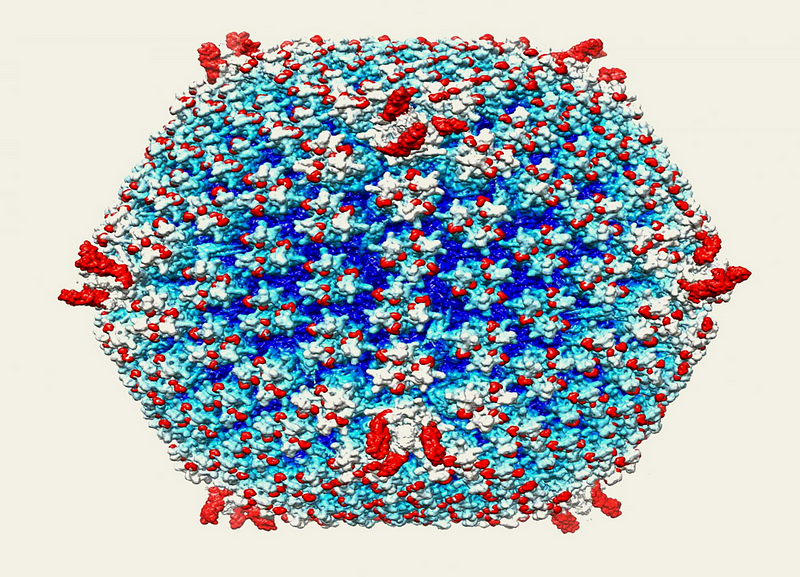Innovative Oncolytic Virus Targets Cancer Cells While Evading Immunity
Written on
Chapter 1: The Rise of Oncolytic Viruses
Recent advancements in biotechnology have led to the engineering of a modified adenovirus, known as Ad5–3M, which has been designed to specifically target cancer cells. This innovative approach not only aims to reduce inflammation but also to minimize interactions with blood components and immune cells after systemic administration.

Oncolytic viruses, which are viruses that selectively infect and kill cancer cells, have garnered attention for their unique capabilities. Unlike the typical perception of viruses as harmful agents, oncolytic viruses can be harnessed as therapeutic tools against cancer. The recent COVID-19 pandemic has demonstrated the potential of rapid technological advancements in developing treatments, and similar methodologies are now being applied to combat cancer.
Section 1.1: Understanding Oncolytic Viruses
Historically, the use of oncolytic viruses has been researched extensively. In 2015, the FDA approved an oncolytic virus for melanoma treatment, and in 2019, a study revealed that a strain of the common cold virus could effectively target bladder cancer cells. However, a significant challenge remained: the immune system's ability to recognize and neutralize these viruses before they could act on the cancer cells.
"The immune system is designed to eliminate foreign invaders, regardless of their nature. This can hinder the effectiveness of oncolytic viruses."
Subsection 1.1.1: The Immune Response Challenge
As observed during the COVID-19 pandemic, the immune system can become hyperactive, leading to severe conditions such as cytokine storms. This overreaction further complicates the use of oncolytic viruses in treating metastatic cancers.
Section 1.2: A New Approach to Cancer Treatment
In a groundbreaking study conducted by researchers at Emory University and Case Western Reserve, a new oncolytic virus was developed that circumvents immune detection. This innovative "stealth" strategy allows the modified virus to target metastatic cancers without triggering an inflammatory response.
Description: This video explains the mechanism of action of the oncolytic virus CG0070 combined with pembrolizumab in treating bladder cancer.
The researchers identified three specific sites on the adenovirus that bind to immunoglobulin M (IgM) antibodies. By modifying these regions, they successfully deceived the immune system, allowing the oncolytic virus to remain undetected.
Chapter 2: Promising Results from Animal Trials
In preclinical trials involving mice with human lung cancer grafts, the modified adenovirus demonstrated significantly better tolerance compared to its standard counterpart. While the standard virus resulted in fatalities, the modified version showed a complete recovery rate of 35% among treated mice, with no remaining tumors and extended survival rates.
Description: This video discusses the enhanced therapeutic effects and safety profile of a systemically delivered oncolytic adenovirus.
Though the percentage of complete recoveries is modest at this stage, the researchers are optimistic about future trials. The ultimate goal is to bring this modified virus to human trials, specifically targeting patients with metastatic lung cancer, with aspirations to expand its application to various cancer types.
Complete Research findings were documented in the journal Science Translational Medicine.

Stay updated with the latest developments in cancer research — Subscribe to my mailing list.